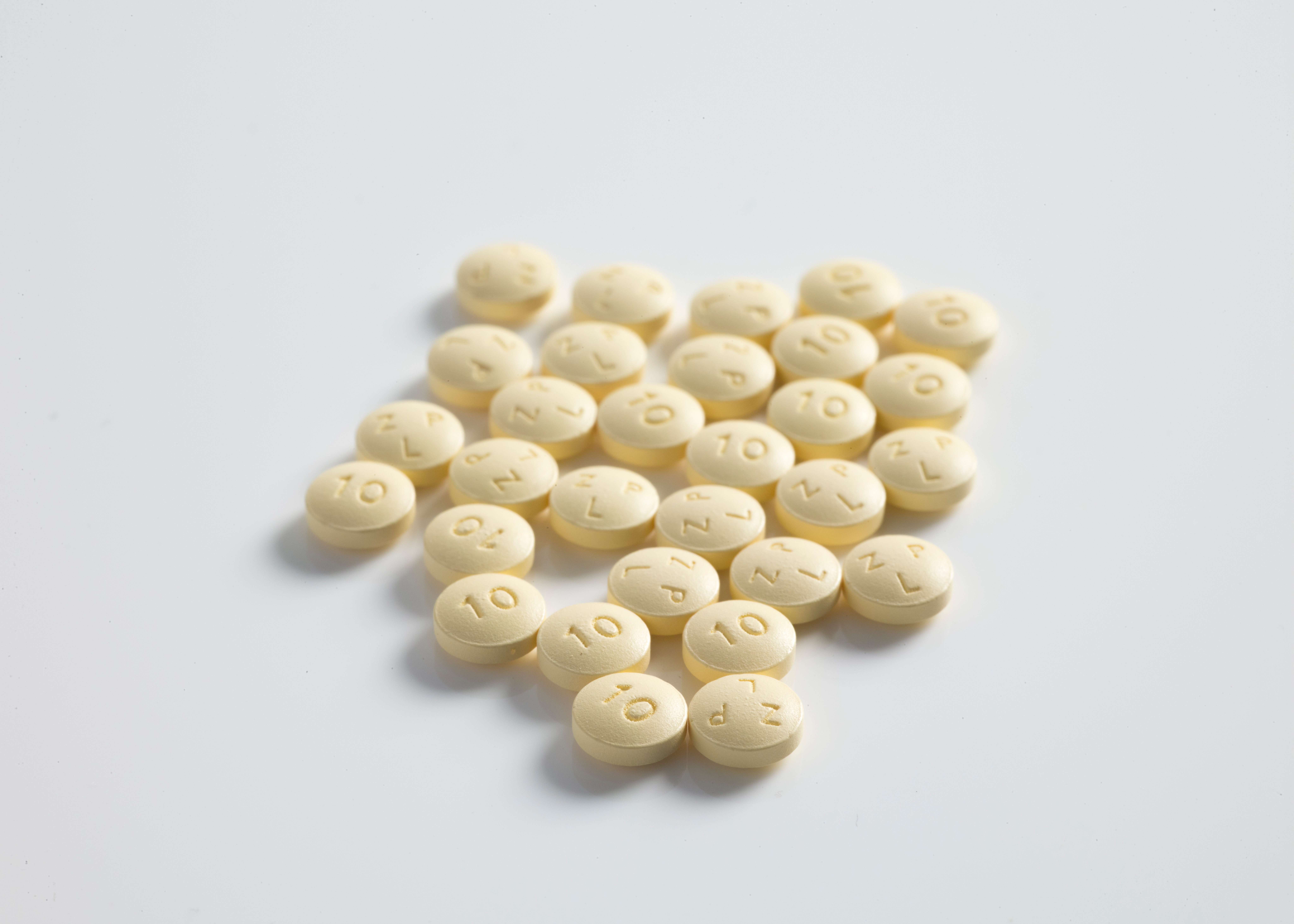
April Kauffman was a victim of the opioid crisis that is ripping America apart. That, at least, is one of the takeaways from the murder trial of Ferdinand “Freddy” Augello who was convicted of arranging the murder of the vivacious Atlantic County radio personality and outspoken military veterans advocate. April was found shot to death in her home on May 10, 2012.
Augello, the pony-tailed former leader of the Cape May County Chapter of the Pagans Motorcycle Club, spent nearly a year trying to set up the hit, according to trial testimony which indicated that several members of his outlaw motorcycle gang along with two alleged mob associates turned down the contract.
April Kauffman was found on the floor in the bedroom of the Linwood, NJ, home she shared with her husband, Dr. James Kauffman. She had been shot in the chest. The good doctor died in a Hudson County jail cell back in January after being charged with hiring Augello to carry out the hit. The cause of his death is listed as suicide, but sketchy details about his demise and about a suicide note he left have added to the mystery. The fact that it took authorities more than five years to put the case together further fueled speculation that the lifestyles of the doctor and his wife and their relationships to high placed political and elected officials made some people in authority reluctant to get to the bottom of what really happened and why.
Augello, from his prison cell and through Facebook postings from friends and associates, continues to deny the charges, insisting he was framed by other members of his outlaw biker gang looking to get out from under their own criminal problems.
A jury in Atlantic County thought otherwise and after a three-week trial in the fall took less than two hours to come back with a guilty verdict. Testimony in the case included details about a pill mill ring that Augello was running with James Kauffman, an endocrinologist who had a well regarded and apparently financially lucrative medical practice in Atlantic County.
The story that emerged during the trial was a tale of sex, drugs and greed, a tragic and surreal drama built around phony prescriptions for opioids written by Dr. Kauffman and converted by Augello and his associates into a pill mill operation that poured several thousand little blue oxycodone pills on to the Atlantic County drug market.
In terms of the national opioid crisis, it was not a major operation.
Across the country, millions of those pills flow illegally onto the streets each month. The National Institute of Drug Abuse estimates that 115 people die every day in the United States from overdosing on opioids.
Every day.
Couple that with studies that put the economic burden of the drug crisis—the costs tied to medical services, rehab programs, job loss and law enforcement efforts—at a staggering $78.5 billion annually and the pill mill operation at the center of April Kauffman’s murder seems almost inconsequential.
But the murder offers a look inside the opioid crisis and an explanation for how drugs like oxycodone—a drug that pharmaceutical firms had initially claimed was not addictive—make their way to the streets.
Phony prescriptions by unscrupulous doctors who have forgotten or chosen to ignore the ethics of their profession—first, do no harm—are the primary source of the drugs. Networks of drug dealers using teams of bogus patients to secure the scripts and pharmacists willing to fill them is the next step in the process. The pills, usually paid for by unsuspecting insurance companies, are sold on the streets for $20 to $30 apiece.
In the Augello-Kauffman operation, testimony indicated, the doctor was writing bi-monthly scripts for 120 pills for from 10 to 15 Augello associates. At the low end (60 pills a month for 10 associates) that’s 600 pills on the street for sale at $20 a pill. That’s $12,000-a-month. At $30-a-pill the monthly gross rises to $18,000.
Again, not a big operation in terms of the national crisis, but significant money, especially for someone like Augello who, according to testimony, was always broke and constantly looking for a score.
Augello owned a sign painting business off Route Nine near Marmora and played in third-rate rock-n-roll bands. He was by some accounts a poor man’s Keith Richards, someone who loved to perform but who was not particularly good at it.
“He didn’t like to practice and could only play four chords,” said someone who had followed Augello’s musical career.
According to the investigation and trial testimony, Doctor Kauffman used the lure of a pill mill to gain access to the Pagans, then promised Augello $50,000 if he could arrange the murder of his wife April. Augello jumped at the offer. But those who knew him said he never intended to do it himself.
For months he searched for a hitman. Several members of his outlaw club turned down the offer. At least two later agreed to testify for the prosecution. Augello was also picked up on surveillance video meeting with two associates of the Philadelphia mob at a casino in Atlantic City. But the mobsters apparently decided that Freddy was making them an offer they could refuse. Authorities said Augello eventually found a drug addict to carry out the hit for $10,000. Augello put the rest of Dr. Kauffman’s $50,000 in his pocket.
The hitman showed up at the Kauffman home on Woodstock Drive in Linwood shortly before 6 a.m. on May 10, 2012. The door was open. He walked inside and was handed a gun by Dr. Kauffman who pointed the shooter to an upstairs bedroom where his wife was sleeping.
The doctor left for work as the hitman climbed the stairs. April Kauffman never had a chance. Neither, it turns out, did the shooter. He died of a drug overdose a year later.
For nearly five years the doctor and the biker got away with murder.
“You will not find two more different people than the wealthy doctor and the defendant,” Atlantic County Assistant Prosecutor Seth Levy told the jury at the opening of Augello’s trial in September. But, he added, each man had the same motive for murdering April Kauffman.
Each man, Levy said, wanted to “protect his empire.”
For Augello, Levy said, it was a pill mill operation that was generating several thousand dollars a month in income for him and the promise of the $50,000 payout for the hit. For Doctor Kauffman, the prosecutor said, it was a personal estate worth an estimated $4.6 million that he did not want to share with his wife who was pressuring him for a divorce.
It was not a happy marriage.
That, too, was part of the trial testimony. The prosecutor said April Kauffman had become disenchanted with the man she had married ten years earlier. Among other things she learned that he had lied about his own military service, claiming to have served in Vietnam with a Green Beret unit and to have been decorated for his heroism.
None of it was true. He had never been in the military.
April Kauffman was both embarrassed and ashamed given her involvement in veterans’ rights programs. Her husband was a fraud and she worried that it could undermine the good she was trying to accomplish.
She wanted a divorce, but he balked. It wasn’t that the doctor wanted to make the marriage work, prosecutors said, but rather a desire not to give his wife half of all he owned in a divorce settlement.
April Kauffman “began stepping out,” the prosecutor told the jury, a vague confirmation of stories and rumors about extra-marital affairs that added a soap opera twist to the murder investigation. She also began to run up staggering bills on her husband’s credit card, hoping to drive him to the conclusion that it might be cheaper to divorce her.
Instead, the doctor decided it would be even cheaper to have her killed.
Phony prescriptions for oxycodone was part of the price he was willing to pay.
It would be impossible to determine the specific impact drugs from the Kauffman-Augello pill mill ring had on the opioid crisis in Atlantic County, in New Jersey or in the United States. Who became an addict as a result? Who moved on to heroin? Who ended up in a hospital? Or in a morgue?
The only thing that can be said with certainty is that April Kauffman was a victim of the pill mill operation her husband and Freddy Augello set in motion.

